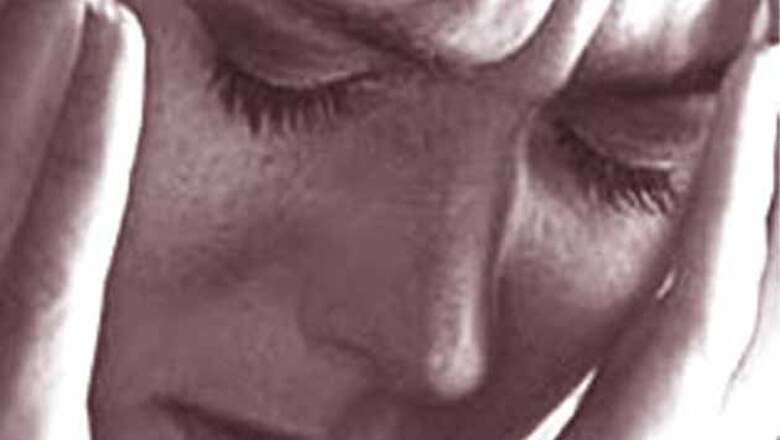
views
New York: Many people who suffer migraines believe that certain weather changes set off their symptoms, but a new study finds no strong evidence that this is true.
"Weather is most probably overestimated," researcher Dr. Christian Wober, of the Medical University of Vienna, said. "People search for causal explanations for their migraine attacks, but recall is often biased."
The findings, reported in the medical journal Cephalalgia, add to a conflicting body of research into the idea that weather factors -- including changes in temperature, sunshine and atmospheric pressure -- are true migraine triggers.
A study published last year in the journal Neurology, for instance, found a correlation between weather changes and ER visits for migraine and other headaches at one Boston hospital. For every increase in temperature of about nine degrees Fahrenheit, the odds of visits for migraine and non-migraine headaches rose by 7.5 percent.
Similarly, the risk of non-migraine headaches increased during the two to three days following a drop in atmospheric pressure. Low pressure generally means cloudy skies and storms, while high pressure means clear skies.
However, a number of other studies -- including the current one -- have failed to find a clear connection between weather and migraine.
For this latest study, Austrian researchers had 238 adult migraine sufferers keep "headache diaries" for three months. Each day, the study participants recorded whether they'd had a headache, and if so, the details of their symptoms. They also rated their exposure to a range of factors potentially related to migraine; that included seven questions on the weather.
The researchers used data from a Vienna meteorological institute to objectively measure the relationship between participants' reported symptoms and daily weather changes during the three-month study.
At first glance, study participants appeared to have a somewhat higher risk of migraine attacks on days with lower average wind speed. There was also a connection between day-to-day changes in sunshine duration and migraine risk. Statistically speaking, however, those links could easily have been due to chance.
In addition, the researchers found, there were many discrepancies between participants' perceptions of the weather on a given day and what the meteorological data actually showed.
The findings, along with those of some past studies, indicate that weather factors are of "very limited" importance in triggering migraines, Wober told Reuters Health in an e-mail.
People may, for instance, be more likely to recall "bad weather" on days they have a migraine, or less likely to do so on migraine-free days, he explained.
So is the book closed on the weather-migraine link? Probably not.
"We cannot definitely conclude that weather has no impact on migraine at all," Wober said, acknowledging the mixed results of past studies.
Dr. Kenneth J. Mukamal, the lead researcher on the 2009 study that linked weather variables to ER visits for migraine, said his study and the current one differed significantly in their methodology.



















Comments
0 comment